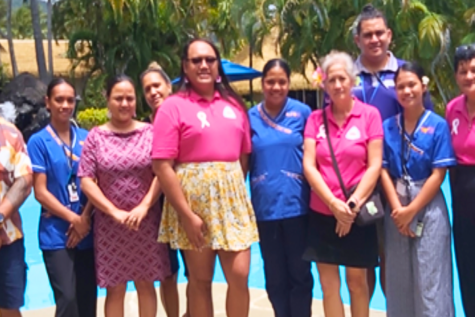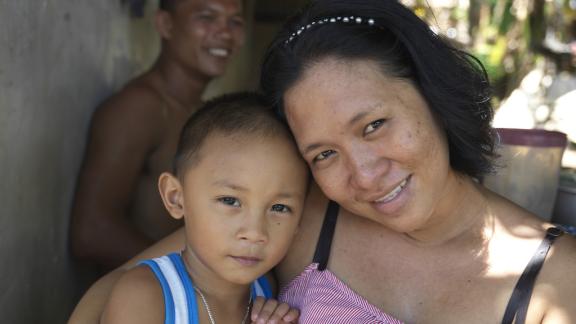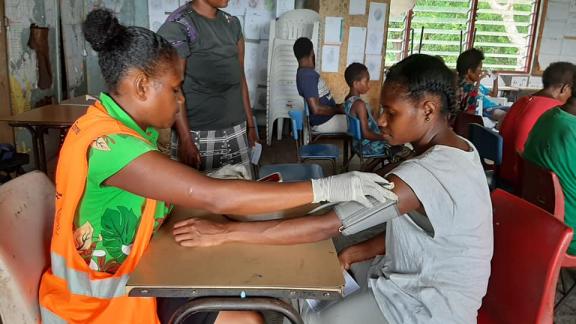Spotlight
A selection of resources from across the Federation

Cook Islands, New Zealand
Ora’anga Meitaki no te Vainetini: Cook Islands Women’s Wellbeing in the Context of Abortion
In 2022, research on abortion, including unsafe abortion, in Cook Islands was conducted by the University of New South Wales, University of the South Pacific Cook Islands Campus Te Puna Vai Mārama | Centre for Research, and Cook Islands Family Welfare Association (CIFWA). Ora’anga Meitaki no te Vainetini: Cook Islands Women’s Wellbeing in the Context of Abortion includes the lived experiences and stories of women, advocates, support persons and health workers in the Cook Islands and Aotearoa New Zealand.
Filter our resources by:

| 07 October 2023
RESPOND Annual Report 2023
The Year Two Annual Report of the RESPOND (Responding with Essential Sexual and Reproductive Health and Rights (SRHR) Provision and New Delivery Mechanisms) program highlights the significant achievements and collaborative efforts of IPPF (International Planned Parenthood Federation) and MSI (MSI Reproductive Choices) in implementing essential sexual and reproductive health (SRH) services, between August 2022 and July 2023. This report highlights progress made by both IPPF and MSI in delivering quality SRH information and services, addressing the challenges faced, and outlining the key priorities for the remaining period of program implementation. At its core, the RESPOND program is ensuring that all people have access to quality SRH services in the Asia and Pacific region. The teams at MSI Asia Pacific (MSIAP) and IPPF and their Country Programmes (CP) and Member Associations (MA) have proved their commitment to this mission, which is evident in the quantitative and qualitative achievements made over the second year of the program. Leveraging IPPF’s and MSI’s established services and teams and maintaining close communication with local networks and partnerships at a countrywide level, RESPOND consistently achieves notable advancements towards its goals. The success of service implementation is greatly attributed to the strong collaborative partnerships forged with local civil society organisations, government agencies, and healthcare providers. These partnerships have facilitated the integration of project activities into existing local systems, ensuring sustainability and local ownership of the initiatives. MSI and IPPF have had a longstanding, collaborative relationship, both at the country and management level. Program management teams have collaborated through shared learnings and resources, coordination of report submissions and presentations and monitoring trips to CPs and MAs. This relationship has benefited staff in country, as they have access to more support and resources to achieve quality service delivery. Both MSI and IPPF are looking forward to continuing this working partnership into the future. Download the full report and read on for more details
| 13 September 2023
Virtual Quality of Care Assessment Tool - User Guide 2022
Quality of Care (QoC) plays a central role in IPPF-supported health service delivery. It depends on the relationship between providers and clients, emphasizing the importance of delivering high-quality services with respect, compassion, and empathy, tailored to the client's needs, values, and preferences. At the same time, generating demand for services requires raising awareness within the community about their health needs and rights. High-quality services not only meet this demand but also enhance acceptance, uptake, and long-term usage within the community. Our approach is founded on the belief that a client-centered perspective is essential in ensuring the provision of quality healthcare as a fundamental human right, particularly in sexual and reproductive healthcare delivery. We have meticulously developed the Virtual Quality Assessment tool through extensive consultations with our Medical Associates (MAs) and invaluable support from our Secretariat's technology experts. This tool's primary purpose is to enable MAs to comprehensively assess the quality of care offered at Service Delivery Points (SDPs) to enhance the effective delivery of SRH services. It employs a hybrid approach to assess the quality of MA SDPs, both in virtual/remote and onsite settings, covering seven critical components of the IPPF QoC framework, accreditation membership standards related to QoC, Minimum Initial Service Package (MISP) and humanitarian quality of care standards, as well as digital health considerations. We hope that this enhanced QoC assessment tool will be integrated into MA existing quality assurance systems, strengthening our commitment to achieving the objectives outlined in the 2028 strategy.
| 07 September 2023
Annual Report 2022
This Annual Report summarizes the collective efforts and accomplishments of IPPF Member Associations and Secretariat in East and South East Asia and Oceania Region (ESEAOR) for 2022 - focusing on the works and efforts of our Member Associations after the pandemic. It also contains some stories behind the statistics. Some of the highlights include advocacy wins (contributed 15 policy wins related to SRHR); over 28 million of young people completed a quality assured CSE programme; and our MAs managed to deliver over 14 million sexual and reproductive health services to clients. Read on for more details.
| 20 July 2023
Guideline on Youth Participation and Youth Centred Approach
The International Planned Parenthood Federation’s (IPPF) ‘Come Together - Strategic Plan 2028’ is a comprehensive plan that outlines IPPF's commitment to supporting young people in realizing their sexual and reproductive health and rights (SRHR). The plan recognizes the importance of 'youth-led' and 'youth-centred' programming in achieving these goals and emphasizes the need for young people to have control over all aspects of the initiative with minimal input from adults. To further this commitment, IPPF East & South East Asia and Oceania Region (ESEAOR) has developed a guideline that provides easy-to-use guidance for implementing, improving, and expanding a youth-centred approach with the MAs and Collaborative Partners in ESEAOR. This guideline is meant to serve as a starting point for organizations looking to create a culture and climate that encourages youth participation at all levels. It is important to note that adopting a 'youth-centred approach' is an evolving and incremental process. Therefore, we encourage the MAs and Collaborative Partners to treat this guideline as a living document and to enrich it with their own experiential learning. By doing so, we can continue to promote and advance the sexual and reproductive health and rights of young people in the years and decades ahead.

| 06 July 2023
Talking Pleasure with Ease - A guide to the “Why” and ”How” of Pleasure-Based Sexual Health in Youth Programming
IPPF and The Pleasure Project share a sex-positive vision for advancing sexual and reproductive health and rights (SRHR). By endorsing the Pleasure Principles, IPPF demonstrates its commitment to using a pleasure-based approach in sexual health interventions. This document, "Talking Pleasure with Ease," illustrates how this joint vision is implemented. We demonstrate how pleasure-based approaches are integrated into the four impact areas of IPPF's Youth-led Programme's Theory of Change (TOC). We also explain how IPPF's TOC promotes a more pleasure-based approach and provides guidance on using our fun Pleasure Principles. We hope these resources will be engaging and inspiring for Youth and CSE programming facilitators, enablers, developers, and advocates, enabling them to "Talk Pleasure with Ease."
| 13 April 2023
Diverse SOGIESC Inclusion Programming Toolkit
The Diverse SOGIESC Inclusion Programming toolkit, the third toolkit in the Diverse SOGIESC inclusion series, developed in collaboration with our MAs and supported by other Secretariat members, aims to continue the work of supporting IPPF MAs with engaging and serving the LGBTIQ+ community. This Diverse SOGIESC inclusive SRHR Programming seeks to use targeted and mainstreamed approaches to include people with diverse SOGIESC, as well as efforts to transform harmful norms that have resulted in marginalisation of people with diverse SOGIESC. This document contains three parts. Part one consists of a situational analysis of the region which seeks to explore legal and social restrictions and challenges faced by people with diverse SOGIESC. Part two includes case studies of four IPPF Member Associations (MAs) from ESEAOR Region on working towards diverse SOGIESC inclusion in restrictive settings. These four MAs have previously rolled out the Diverse SOGIESC Inclusion Self-Assessment, and these case studies serve as their learnings and progress. Part three provides guidance on diverse SOGIESC inclusive SRHR programming to support IPPF MAs with further inclusion in regard to the organisational policy framework, capacity building, programmes, services, and advocacy. This section is adaptable as a tool for inclusive SRHR programming with regard to other marginalised community. The goal of this tool is to provide the resources necessary for IPPF MAs to reach people who are being unjustly excluded and marginalised and providing safe, quality care as well as fulfilling the SRHR needs of gender diverse and LGBTIQ+ communities, in alignment with IPPF’s New Strategic Framework 2028. This resource will continue the Federations’ support for IPPF MAs in enhancing capacities and improving services to better serve gender diverse people.









